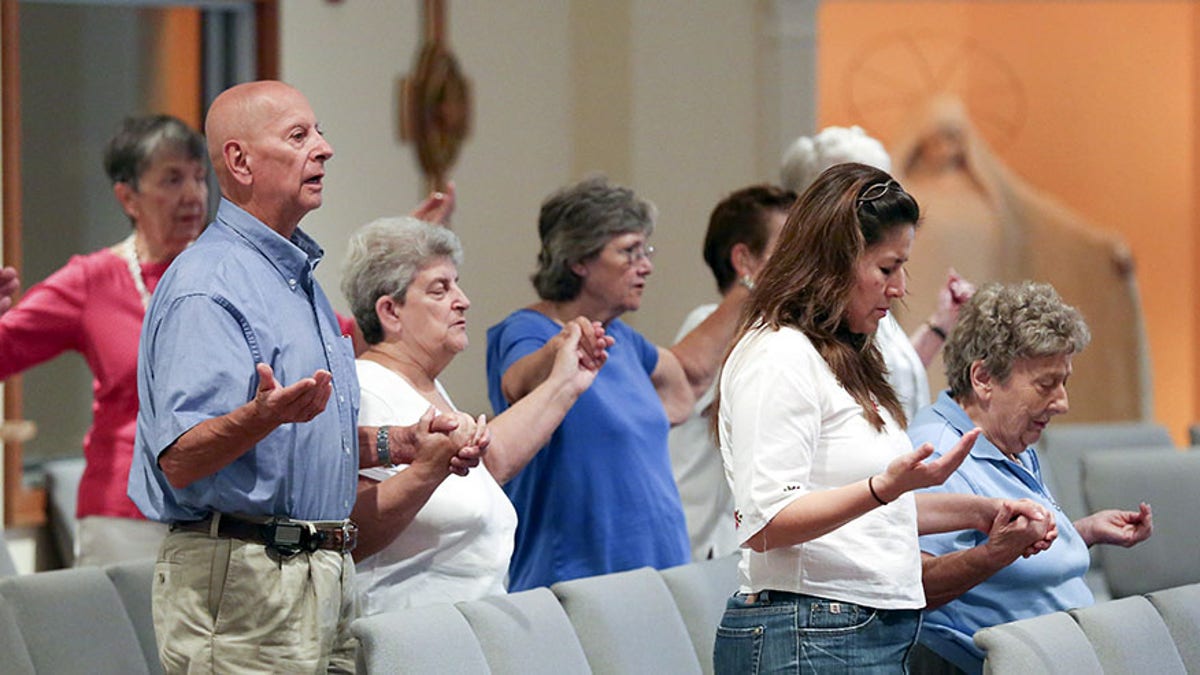
(Reuters)
There’s a simple formula for deepening your faith.
Are you ready?
“? > .”
That’s it.
Question marks are greater than periods.
This is actually the formula Jesus used throughout his life. In the four books written about his life, Jesus was asked 183 questions, but only answered three—and at the same time, he asked 307 questions of his own!
So you see, Jesus is not just the answer ... he is also the question.
(ALMOST) EVERYTHING I NEED TO KNOW I LEARNED ON MY PAPER ROUTE
He understood there are no short cuts to God. We all have to wrestle with our faith, and search for answers if we’re going to mature. But those answers will only come when we have the courage to ask tough questions.
And make no mistake—it will require an extra measure of courage to ask your questions about faith. That’s because there’s an entire generation that has been taught not to question the Church, not to question the person behind the pulpit, and certainly not to question the Bible. As a result, when the faith of our childhood no longer answered our adult questions about the Bible or God, a large percentage of this generation simply walked away from the church. And the ones that stayed struggle when faced with a contradiction in the Bible, or when wrestling with something they heard in church.
But there’s a story in the bible of a man named Jacob, who one night literally wrestled with God. By the end of the divine smackdown, God decided to change Jacob’s name to Israel, which in Hebrew means “struggles” or “wrestles with God.”
This story started a tradition amongst the ancient Jews that God invites all of His followers into this wonderful wrestling match with Him. Renowned Jewish theologian Abraham Joshua Heschel once summed up the power found in wrestling with God and our faith, when he said: “We are closer to God when we are asking questions than when we think we have the answers.”
Despite this ancient wisdom found at the core of our faith, it seems a lot modern Christians have adopted the bumper sticker theology of “God says it, I believe it, that settles it”—which leaves no room for questions. But asking questions is how we learn. Confronting our doubts is how we grow. When we use a question mark, we invite others into a conversation where we can hear new ideas, and get new perspectives. This is what Jesus does when he uses question marks throughout the gospels. He invites people into conversations by asking questions, discussing their doubts, and in the process helps deepen their understanding of God.
For these reasons, when my three daughters come home from school or church, I often ask them; "Did you ask good questions today?” I don’t want them to be afraid of what they don’t know, or scared to have doubts about their faith. Theologian Philip Yancey has said; “the Bible includes so many examples of doubt. Evidently God has more tolerance of doubt than most churches.” Or, as pastor and author Rick Warren puts it; “Living by faith isn’t living with certainty. It’s trusting God in spite of unanswered questions and unresolved doubt.”
It’s easy to assume that “mature” followers of Jesus have smooth and consistent spiritual journeys—but my experience is that the more you grow in our faith, the more questions you often have. That’s because a smart person will give smart answers, but a wise person will ask smart questions.
CLICK HERE TO GET THE FOX NEWS APP
The goal of our faith journey is not to eradicate questions about God, but to be able to stand firm in the midst of our doubts. And when we’re able to do this, we will stop using scripture to end conversations, we will instead use scripture to start conversations.
“? > .”
